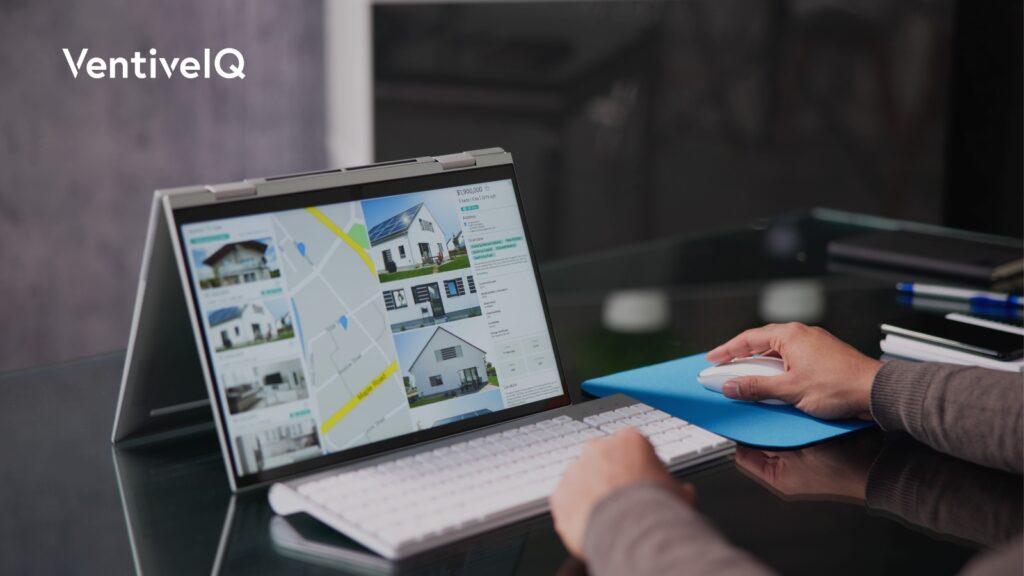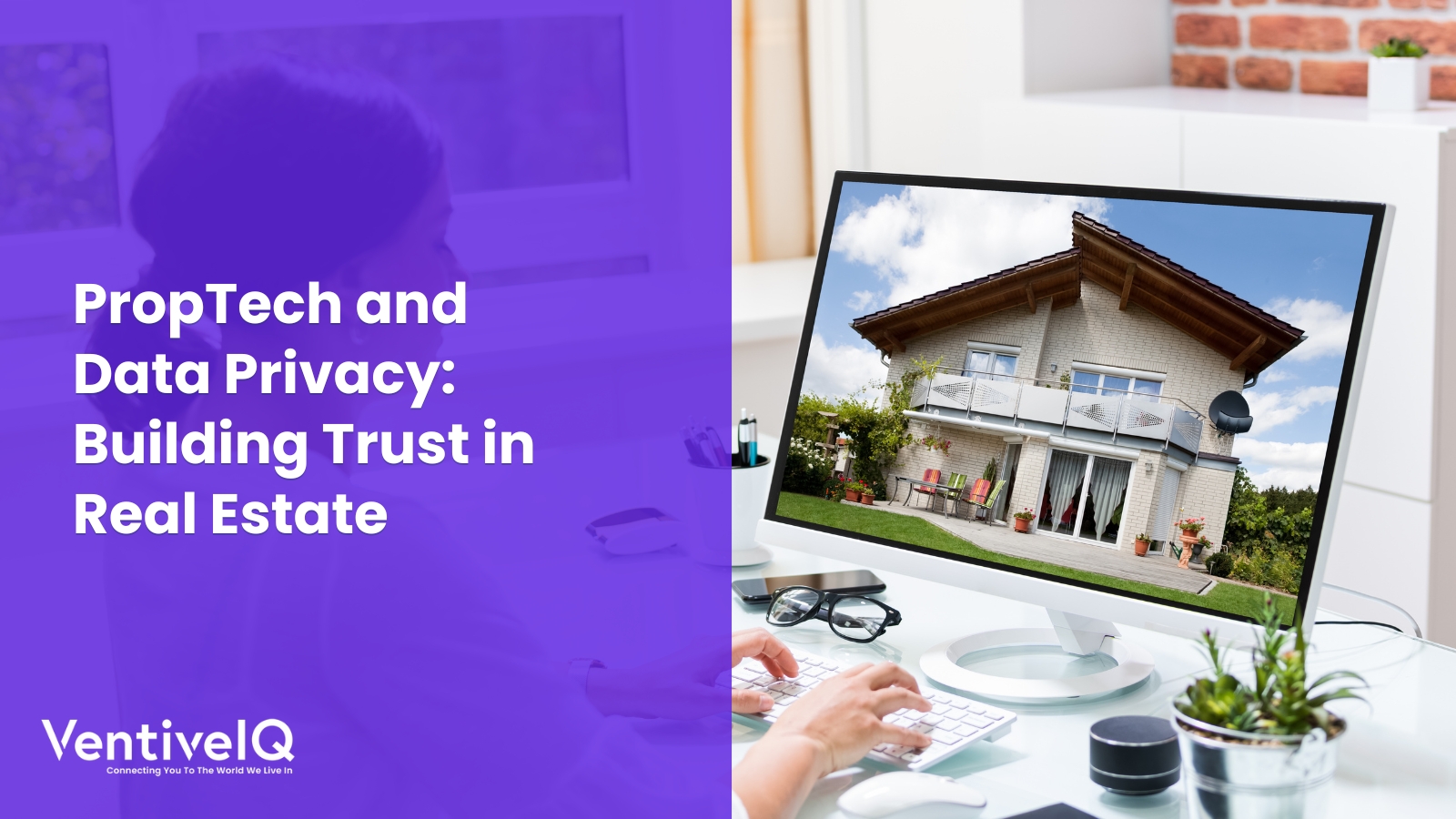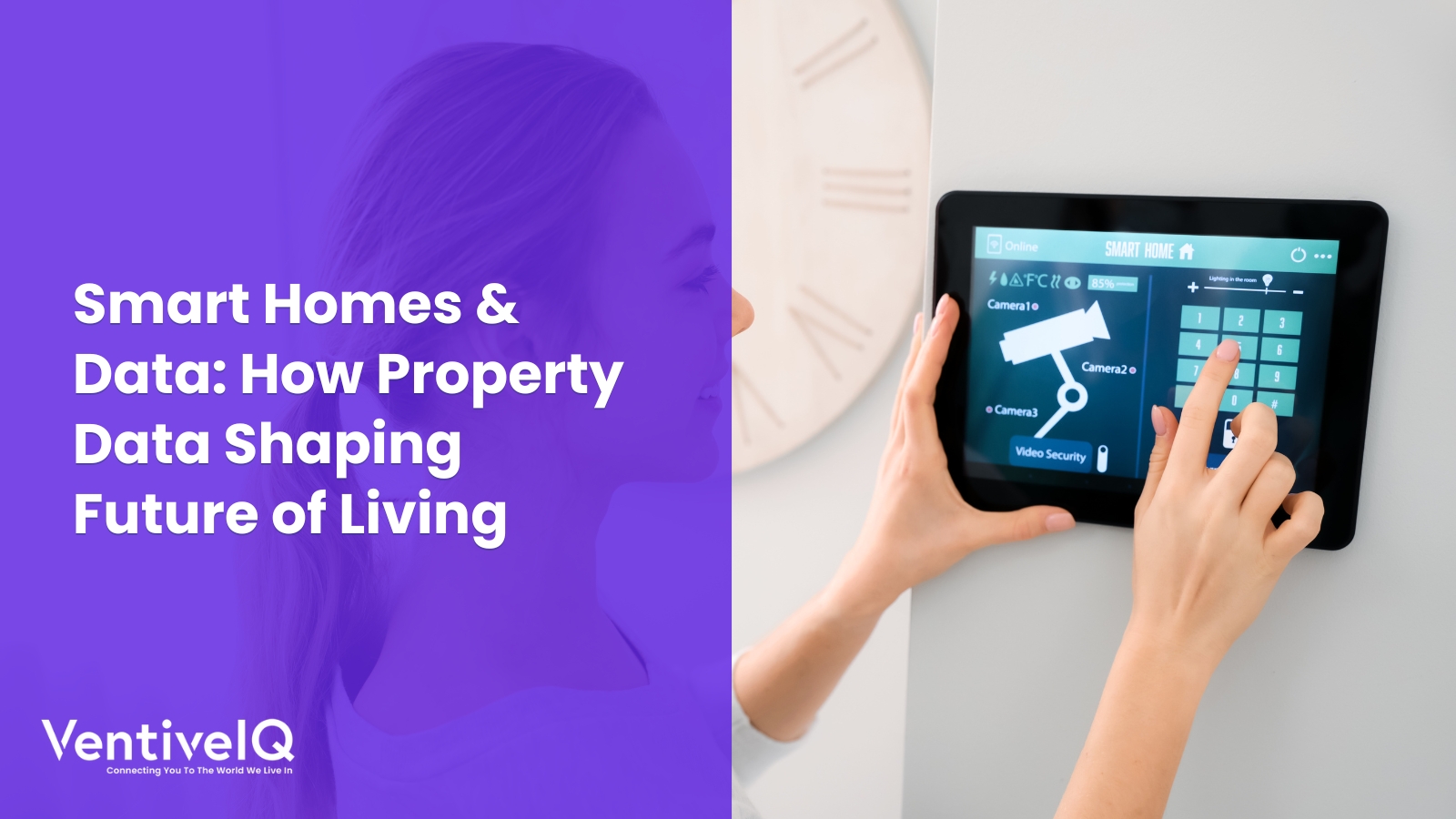The US PropTech boom is transforming real estate, but data privacy concerns linger. Learn how to build trust with consumers in this data-driven landscape.
Introduction: The Convergence of Proptech & Data Privacy
The US real estate market is undergoing a digital revolution. PropTech (property technology) is rapidly transforming everything from property search and listing to management and investment. Prop Tech promises to streamline processes, enhance transparency, and unlock new opportunities for businesses and consumers alike, from virtual tours and AI-powered valuations to smart home integrations and data-driven analytics.
However, with this wave of innovation comes a growing concern: data privacy. The vast amount of personal information collected through property technology platforms raises questions about data security, consumer trust, and compliance with evolving regulations.

This blog post from VentiveIQ dives deep into the intersection of property technology and the privacy of data. We will explore the challenges and opportunities this dynamic landscape presents and equip US businesses with the knowledge and tools needed to build trust and thrive in the digital age of real property.
The PropTech Boom: A Data-Driven Revolution
Prop Tech encompasses a vast array of innovative technologies that are reshaping the US real property market. From online listing giants like Zillow and Trulia to virtual reality tours, smart home automation systems, and AI-powered property valuation tools, property technology is streamlining processes, enhancing user experiences, and unlocking valuable data insights.
Read more: Data-Driven Future: Prop Tech Reimagines Property Management
This data – encompassing everything from demographics and search behavior to rental history and financial information – holds immense potential. Businesses can leverage this data to personalize marketing campaigns, optimize property management, and gain a deeper understanding of market trends. However, with great power comes great responsibility. The vast amount of personal data collected by property technology companies raises significant concerns about data privacy and security.
Role of Privacy of Data in Building Consumer Trust
At the heart of any successful real estate transaction lies trust. Buyers and sellers alike entrust sensitive information to real property agents, brokers, and online platforms, expecting it to be handled with care and confidentiality. However, the digitalization of real property processes has introduced new complexities regarding the privacy of data.
Consumer trust hinges on the assurance that their personal information is protected from unauthorized access, misuse, or exploitation. Any breach of trust can have far-reaching consequences, leading to reputational damage, legal ramifications, and loss of business.
In the realm of property technology, the privacy of data goes hand in hand with data security. Robust cybersecurity measures are essential to safeguard sensitive data from cyber threats such as hacking, phishing, and identity theft. By investing in advanced encryption protocols, secure databases, and regular security audits, real property companies can mitigate the risk of data breaches and instill confidence in their clientele.
Navigating the Data Privacy Tightrope
Consumers in the US are increasingly privacy-conscious. Data breaches, targeted advertising, and the ever-present threat of identity theft have fostered a sense of caution when it comes to sharing personal information. property technology companies that fail to prioritize the privacy of data risk losing consumer trust and market share. Here are some key privacy of data considerations for US property technology businesses:
- Transparency & Consent: Be upfront about the type of data you collect, how it is used, and with whom it is shared. Obtain clear and informed consent from users before collecting any personal data.
- Data Security: Implement robust security measures to safeguard sensitive consumer information. This includes encryption, access controls, and regular system audits.
- Data Minimization: Collect only the data essential for your business operations. Avoid collecting unnecessary personal details.
- Data Retention & Deletion: Establish clear policies for data retention and deletion. Consumers should have the right to access, correct, and request the deletion of their data.
- Compliance with Regulations: Stay abreast of evolving the privacy of data regulations in the US, such as the California Consumer Privacy Act (CCPA) and the General Data Protection Regulation (GDPR) which applies to EU citizens’ data.

Building Trust in the PropTech Era
Property technology offers a win-win scenario for businesses and consumers, but only if trust is established. Here are some actionable steps US property technology businesses can take to build trust with consumers:
- Prioritize Data Security: Demonstrate your commitment to data security by obtaining industry-recognized security certifications.
- Communicate Clearly: Provide clear and concise explanations about how data is collected, used, and protected. Make privacy policies readily accessible and easy to understand.
- Offer Transparency & Control: Empower users with control over their data. Allow users to access, correct, and request deletion of their data.
- Focus on Value Exchange: Demonstrate the value consumers receive in exchange for sharing their data. Offer personalized experiences, targeted advertising, and improved services based on user data.
- Invest in User Education: Equip users with the knowledge and tools to manage their privacy settings and understand data collection practices.
VentiveIQ: Building Trust Through Data Insights
At VentiveIQ, we understand the delicate balance between leveraging data for insights and protecting user privacy. Our data solutions are designed with privacy in mind. We anonymize and aggregate data to ensure individual user information remains confidential.
We believe that property technology can be a force for good in the US real property market, but only if consumer trust is nurtured. By prioritizing data security, fostering transparency, and offering clear value exchange, property technology businesses can build trust and unlock the full potential of this exciting new era.
VentiveIQ recommends fostering a data-centric ethos within your organization. This involves:
- Data Governance: Establish clear policies and procedures regarding data collection, storage, access, and disposal. Train employees in responsible data handling practices.
- Data-Privacy Champion: Appoint a dedicated privacy of data champion within your organization to oversee compliance and address user concerns.
- Regular Data Audits: Conduct regular internal audits to identify and address any potential privacy data gaps.
The Future, Innovations and Challenges
As technology continues to evolve, the future of property technology holds immense promise for innovation and efficiency gains in the real property sector. From artificial intelligence and machine learning to blockchain and augmented reality, emerging technologies are poised to reshape the way properties are transacted and managed.
However, with innovation comes new challenges and ethical considerations. Balancing the benefits of technological advancements with the imperative of protecting consumer privacy remains a delicate endeavor. Real property companies must prioritize the privacy of data as a fundamental aspect of their business strategy, integrating privacy-preserving features into their technological solutions.

Upholding Trust in an Evolving Landscape
Proptech and data privacy are intricately intertwined in shaping the future of the real estate industry. Building trust among consumers requires a concerted effort to prioritize the privacy of data, uphold ethical standards, and embrace transparency and accountability.



